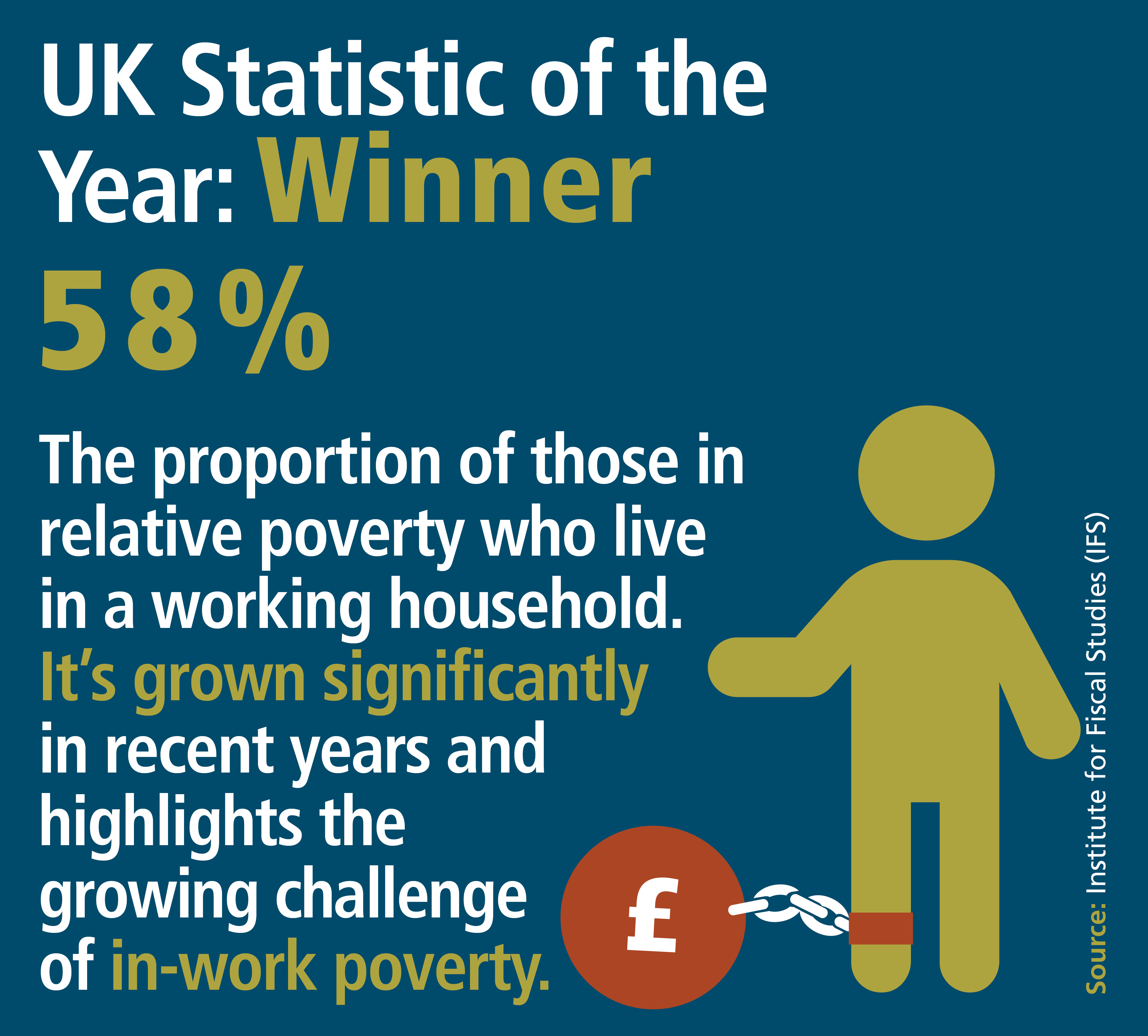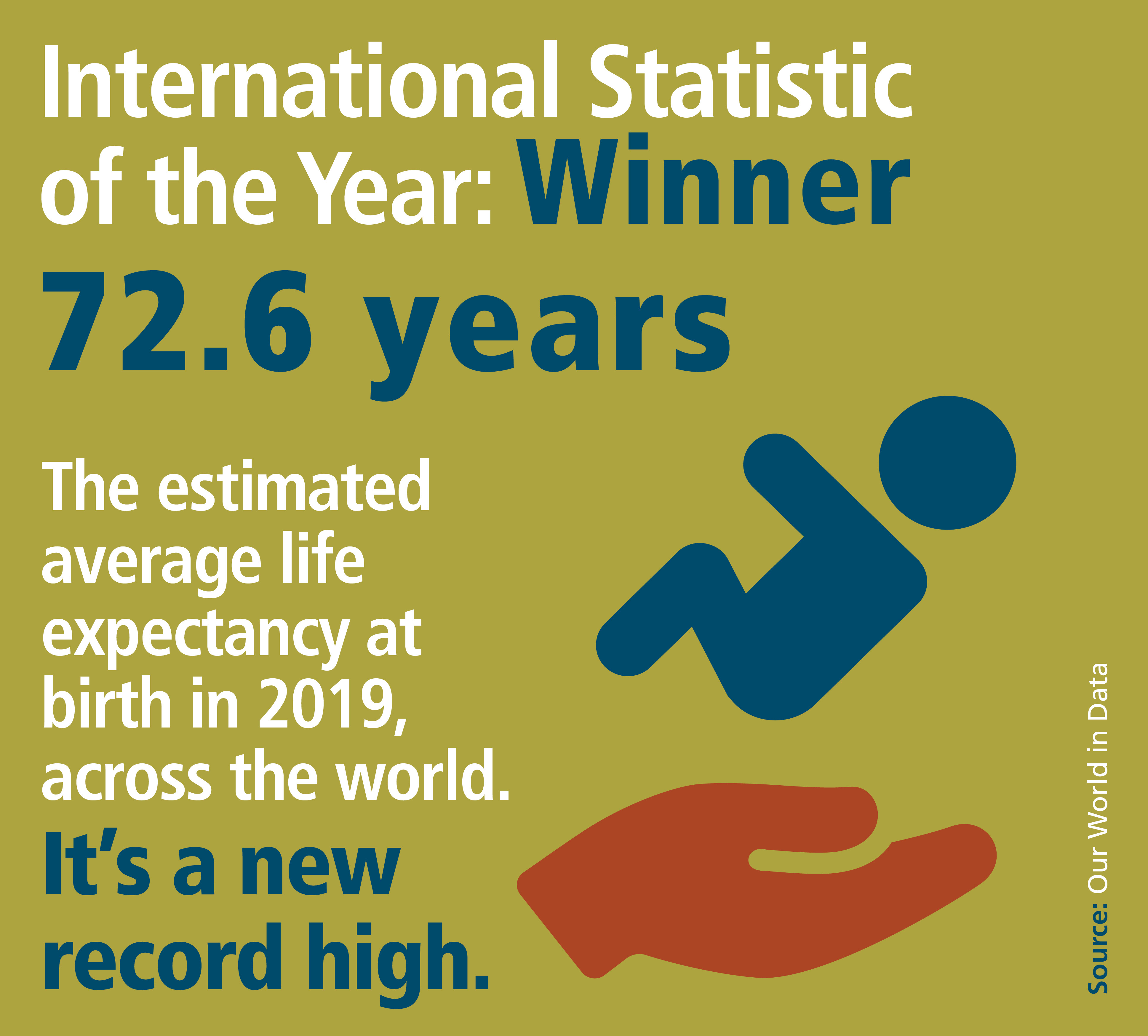
Regular readers will know that I like my stats.
I like them because they, sometimes, confirm what we suspect or, because, sometimes, they tell us things we didn’t know.
And I particularly like them not because they answer a question, but they typically prompt another question – why?
Today is an important day. Today is the day that the Royal Statistical Society have announced their Statistics of the Year for 2109.
The winner of the UK Statistic of the Year is:
58% – the proportion of those in relative poverty who live in a working household.
Take a moment to ponder that. Over half of those living in relative poverty in the UK live in households were (at least) someone works. One could coin a phrase: “Work doesn’t pay.” In the 1990’s, policymakers were seriously concerned about the number of households in which no-one worked. That number has fallen, but the stat above suggests that work/employment may not be the route out of poverty that it should be.

The International Statistic of the year is somewhat more positive.
The global life expectancy of a child born in 2019 is now 72.6 years. Compare this with the global life expectancy of 45.7 years for a child born in 1950. We often see stats about life expectancy in individual countries, but it is heart warming to see this stat which relates to all of us in this earth.
Seeing this stat, I was reminded of one of my statistical heroes – Hans Rosling – and I think he would have been cheered to see this stat. (I have written a couple of blog posts about Hans Rosling – you can see them here, and here.)
Down 28.8%
Highly commended was that stat that tells us that the average sugar content of a fizzy drink has been reduced by 28.8% following the introduction of the sugar tax – a number that far exceeds the reduction in sugar where a voluntary approach (eg breakfast cereals) has been taken. An example of legislation having a positive impact.
10.3%
Another “highly commended” statistic that tells us that more than one in ten of new cars registered in the UK are now electric and/or hybrid models.
Before I sign off, a quick shout out and thank you to the Royal Statistical Society for introducing and promoting the statistic of the year – the award is now in its third year. (In case you missed it, the statistic of the year 2018 was that a staggering 90.5% of plastic waste has never been recycled.)
For my fellow maths teachers – do consider joining the Royal Statistical Society (as a teacher you can join for free!) Click here to see the membership options.